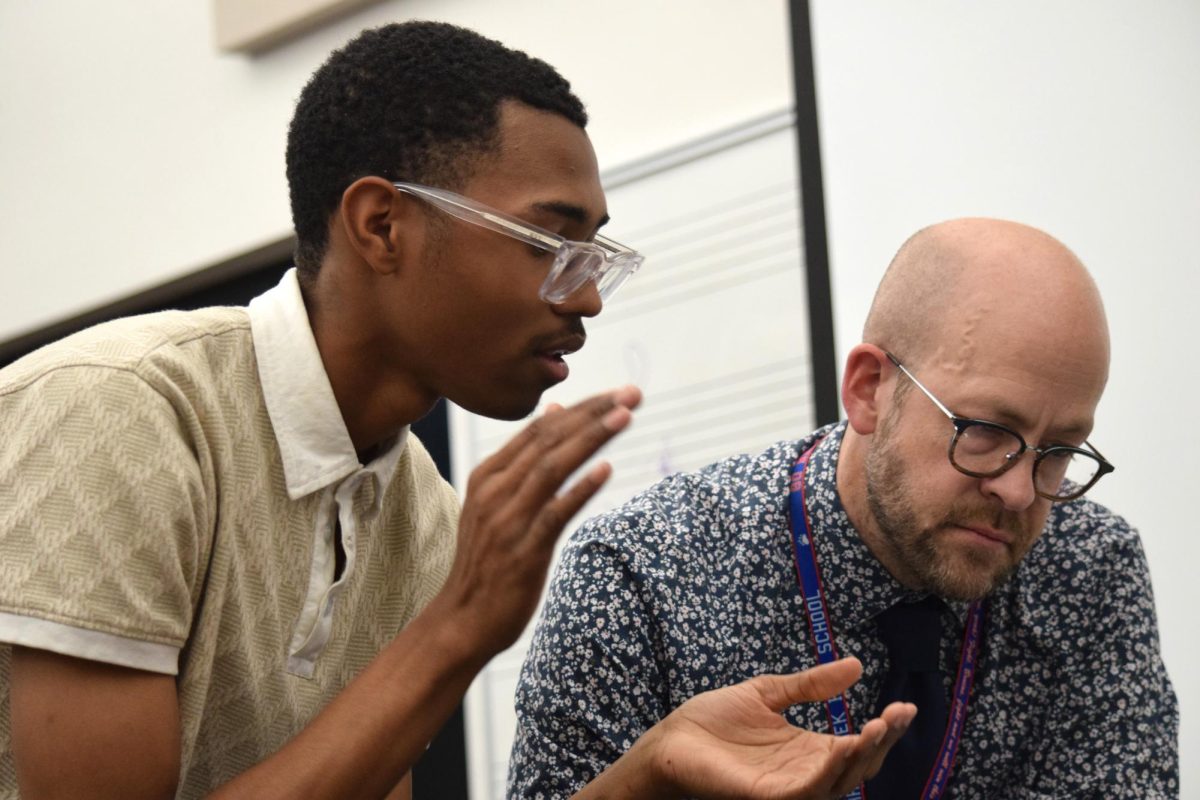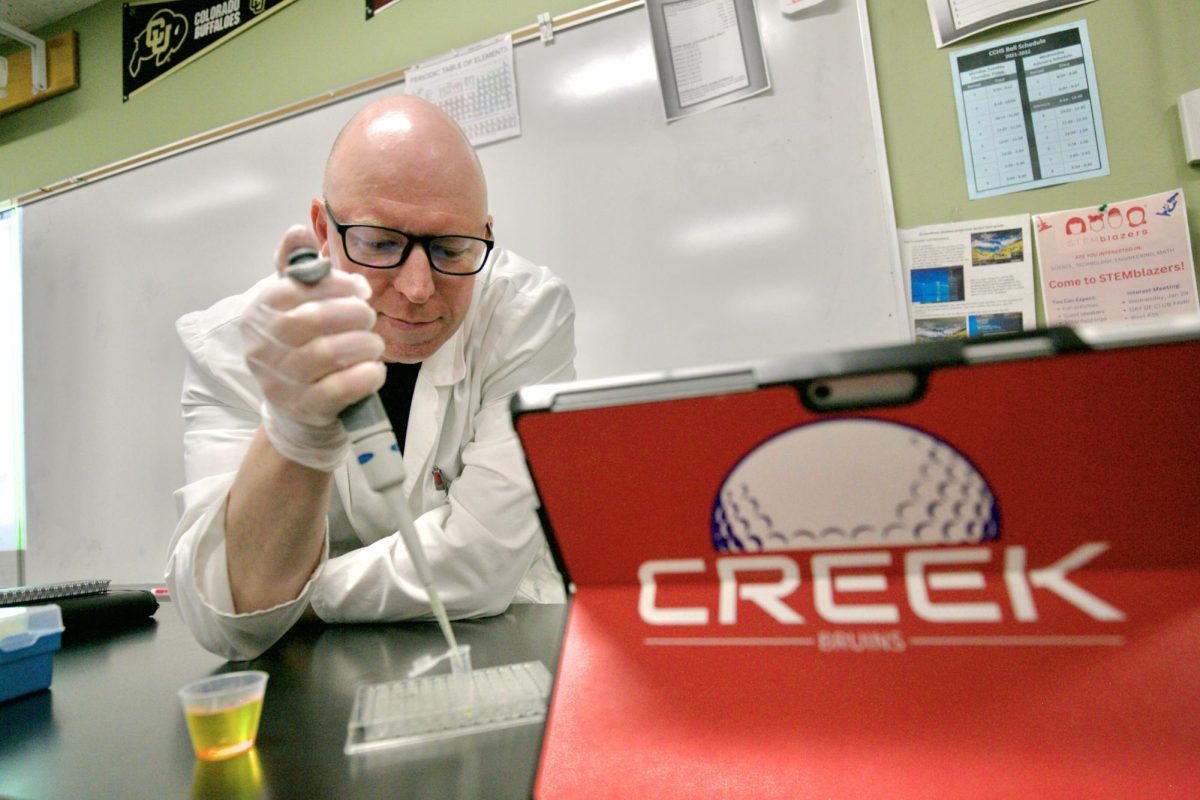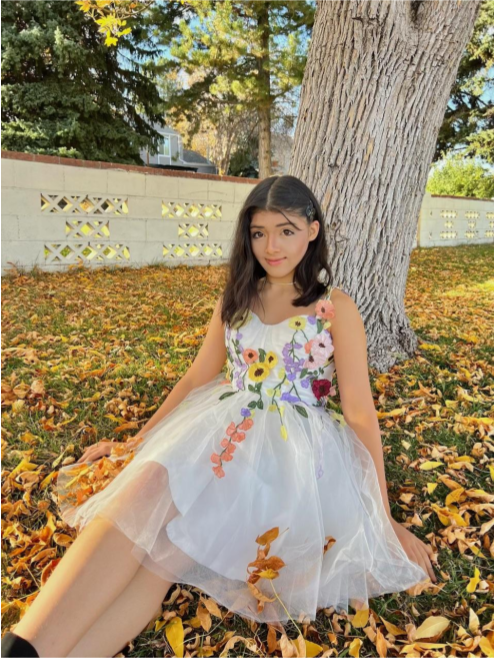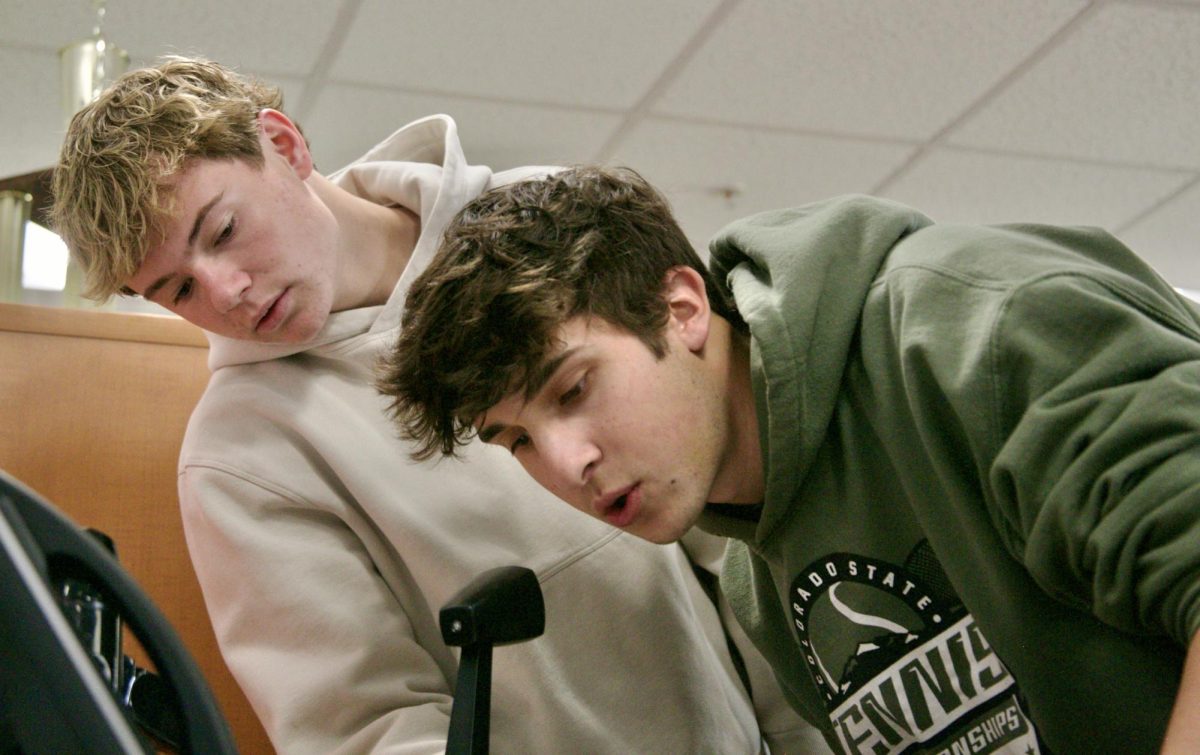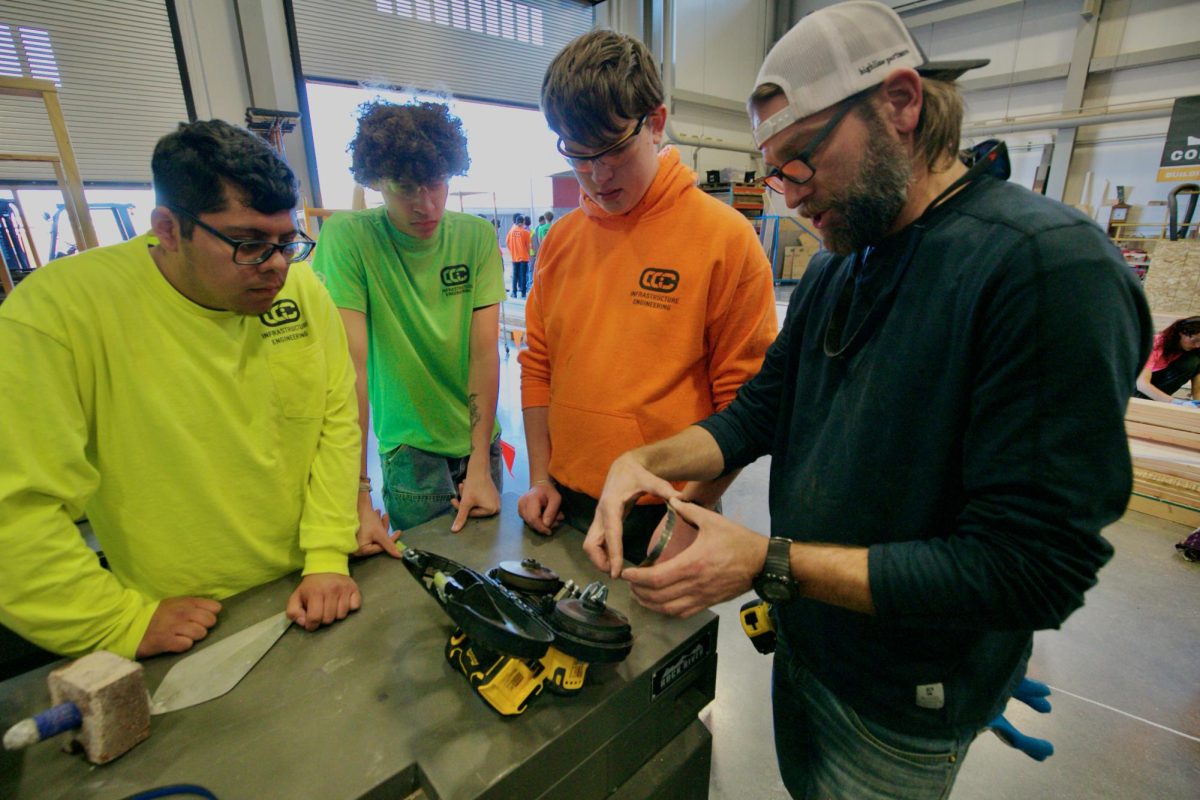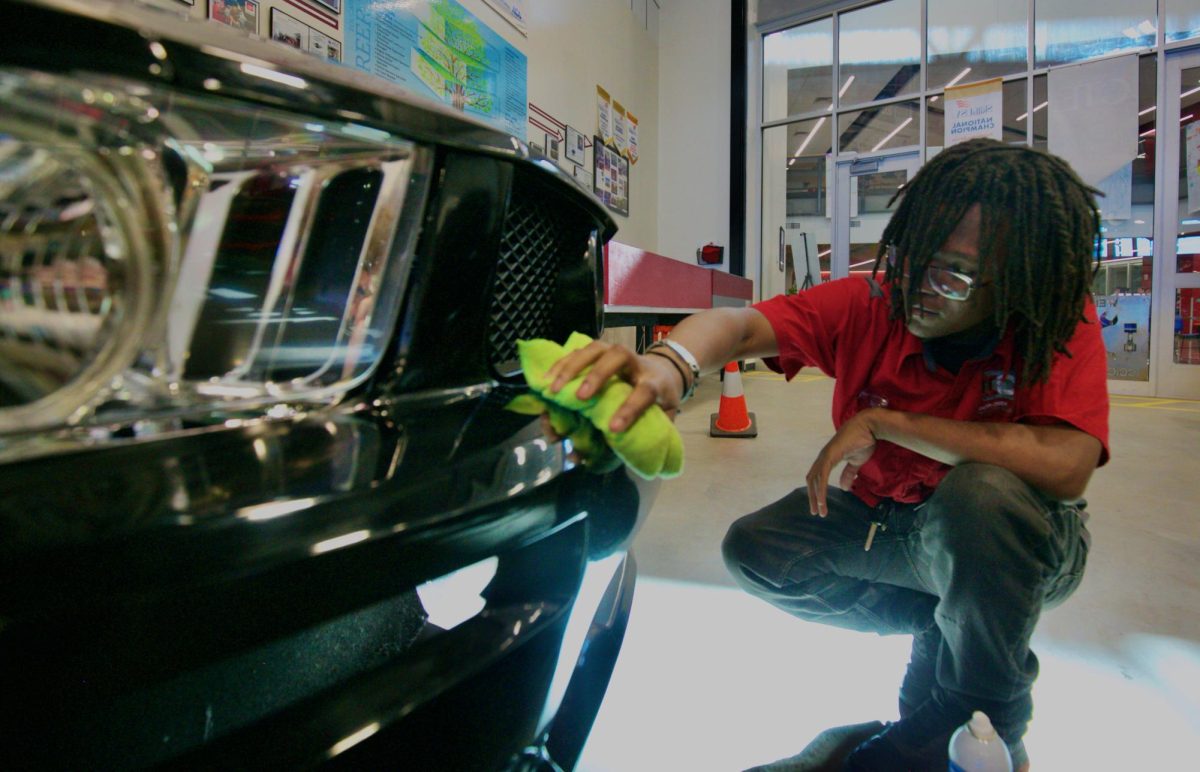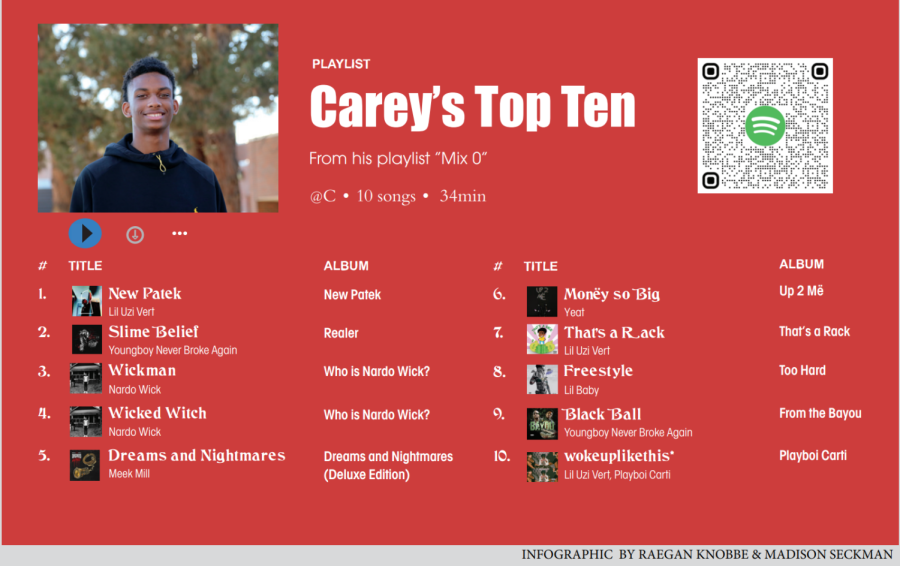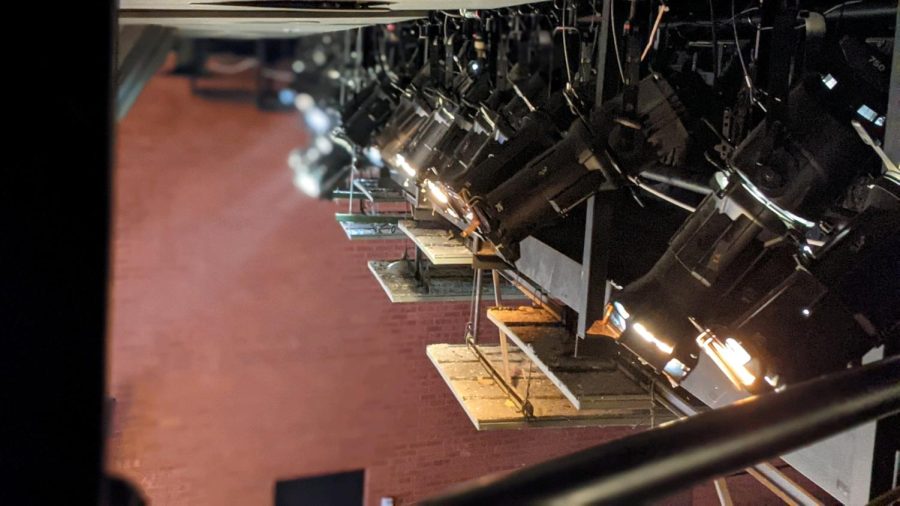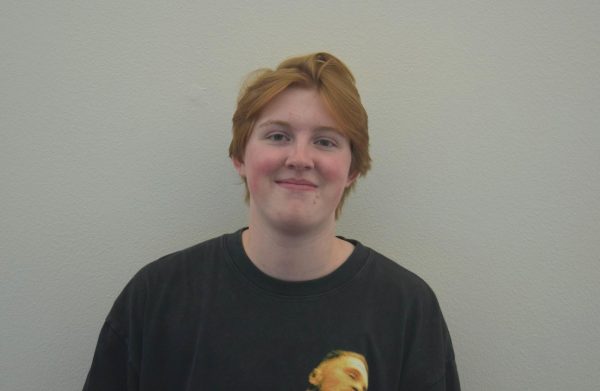Senior Sovereign Walker has composed an all-original choir piece entitled “Cry Not,” to be performed by the Meistersingers at their December 11th concert. His inspirations for the piece included past songs performed by him in the choir, his poetry, and his religious background.
Walker’s mother taught him and his siblings how to sing when he was around three years old, an ability that he was able to use and exercise regularly in church.
Walker started in Statesmen as a Freshman, then Troubadours in his Sophomore year, as a junior he entered Meistersingers. He also took piano lab in his Sophomore year and Music Theory in his Junior year. Walker accredits being in Meistersingers along with Music Theory with improving his ability to compose music. Today, along with being in Meistersingers and singing in church, he is also in the Union Street Jazz Choir.
“I would watch my older brother go into his choir concerts and I wanted to do that one day, so I found my way here,” Walker said. “I think the voice is a really pretty instrument because certain consonants that sound weird on other instruments work interestingly well for the voice. Then, you can pair that with words that lift and inspire.”
Walker’s talent did not go unnoticed by choir teacher Sarah Branton.
“I have only had a few students through my career who have shown enough promise to be able to have their work performed by one of our ensembles. This is a very special event,” Branton said.
Since joining the choir, the community has embraced Walker and he has embraced it.
As a senior, Walker will remember the tight-knit community that Creek’s choir form.
“I have teachers who care about me here, and here you get to know people and make connections with students which help the music,” Walker said. “It’s like a school family, we get to laugh and make music with each other. We take time to connect with the pieces and connect with one another,”

In composing a piece of music, Walker has formed a bond with the choir department’s teachers as well as with students.
“He brings light to anyone who ever encounters him, and he shows that through his music. We would be a very different community without Sovereign as a part of it.” Branton said.
Walker began to compose this piece in his Sophomore year as a Troubadour. In choir that year they performed a piece called “A Song of Light,” and in his poetry club he developed a running theme; many of his poems revolved around light.
“I was sitting in advisory as a Sophomore and the words and the melody (to the song) came to me and so I wrote it down, and I made it into a song with some piano. After a while, I decided that It wasn’t enough, so I decided to turn it into a choir piece,” Walker said.
In order to make the piece fit for a choir, it needed to be divided. Choir music is divided into 4 lines of music based on the type of voice that a given singer has. These voices are soprano, being the highest voice, followed by alto, tenor, and bass, being the lowest voice. “Cry Not” opens on an “overwhelmingly tender” soprano solo, featuring lyrics such as “cry not, let your heart be healed.”
Having grown up going to church, Walker drew inspiration from his faith and used it to create the positive tone of the Cry Not’s lyrics. He accredits God as being the principal inspiration behind the piece.
“That’s where my belief is, I am spreading his love to wounded hearts to mend a very broken world. Sometimes when I feel sad I remind myself not to cry, that it will be alright.” Walker said.
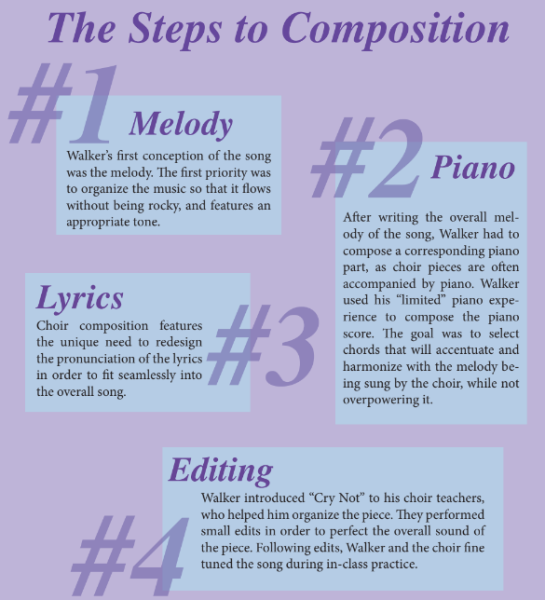
throughout the course of com-position, including fitting certain
words to the tune and editing with
the choir.
Walker has worked closely with instructors such as Branton to put the final touches on the piece. Though Branton had little influence on the start of the piece, she did have a hand in organizing and finalizing it.
“I’ve gotten to know Sovereign on a more personal level because he has been expressing himself through his music,” Branton said. “He’s a once-in-a-career kind of student for a teacher like me.”
Walker is a firm believer that music can be used to unite people across the world. He has noticed firsthand the power music has to bond people in his choir class, and believes it can unite people beyond the music classroom; music can be used as a form of diplomacy.
“I believe that music, despite the many languages and barriers that surround people, it’s the language that God gave us to help spread love,” Walker said. “You can go anywhere in the world and though I can’t speak German, for example, I’m sure that we all know music in some form.”

